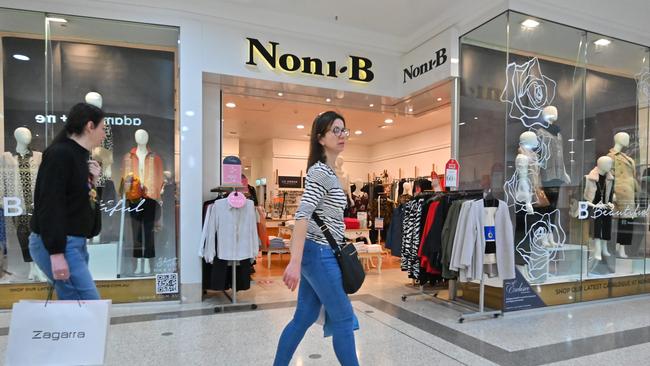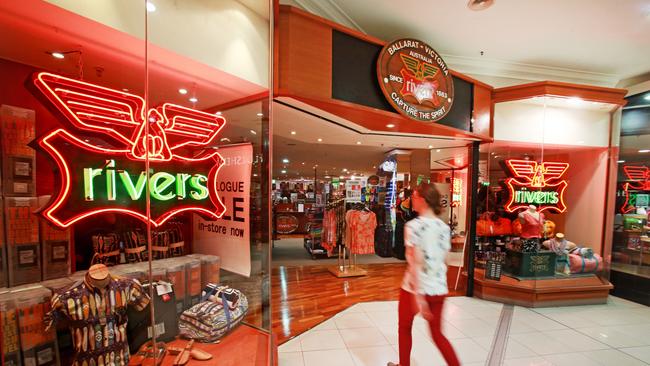Retailer behind iconic brands Katies, Rivers, Noni B to close 250 stores
The retail group that owns iconic brands including Noni B, Katies and Rivers is closing 250 stores.

The retail group that owns Noni B, Katies, Millers and Rivers is closing a further 250 stores by mid-2021, blaming shopping centre landlords for not providing enough rent relief as it struggles with the impact of COVID-19.
Mosaic Brands, which also owns Rockmans and Crossroads, said in August it had been in talks with landlords to renegotiate leases but still anticipated potentially closing up to 500 of its 1300-plus store portfolio nationally over the next year or two.
“Since August we have closed 73 stores in response to unrealistic rental requests and a permanent shift towards online purchases,” chief executive Scott Evans said on Thursday.
“We’re encouraged that a number of landlords have in recent weeks come to the table on rental reductions but not all have and we expect up to a further 250 store closures by June 2021.”

Chairman Richard Facioni said Mosaic was sensitive to the impact the closures would have on staff and would seek to redeploy them “wherever it is practical and feasible to do so”.
He said the pandemic had forced a large number of the brands’ five million-plus in-store customers into hibernation over the past eight months and it had been Mosaic’s toughest year.
“We’ve found ourselves in an unfamiliar position, for any retailer, where our customers have wanted to visit our stores but couldn’t – and we’re saying by and large that’s been for the best,” Mr Facioni said.
“The loss of that opportunity to have a chat or get out of the house has been incredibly hard for both our customers and our frontline retail team during months of lockdowns and restrictions, particularly in Victoria where many stores remain closed until just yesterday.”
The Victorian stores represent 18 per cent of Mosaic’s retail portfolio.

“With most restrictions/lockdowns now lifted we are confident those customers will stir from that hibernation and resume visiting our loyalty brands,” Mr Facioni said.
“Exactly when they will have the confidence to return in-store is still unknown.”
He said there was no doubt the shift to online shopping was permanent and while physical stores would always remain a central part of Mosaic, it would not be “at the cost of unrealistic rents, nor landlord expectations that pre-date the internet”.
The company’s online sales grew by more than 80 per cent during the store closure period.
Mosaic’s said in its annual report that 41 per cent of its store leases were on holdover or expiring by December, with 87 per cent expiring over the next 24 months.
Mosaic posted a massive $170.3 million net loss last financial year.
Subject to the all-important Christmas trading season, Mosaic expects to return to profitability in 2021, Mr Facioni said.


